Mozambique: Daniel Chapo begins six-day US visit, JD Vance meeting and ExxonMobil on agenda
Government begins to back down over media fees – AIM report

File photo: Voa Portugues
The Mozambican government has begun to back down over a decree which, without any consultation, imposes enormous fees on the media and on correspondents.
The decree was to have taken effect on 23 August – but on Tuesday the spokesperson for the Council of Ministers (Cabinet), the Deputy Minister of Culture and Tourism, Ana Comoana, announced that the decree will be “socialised” (by which she presumably meant it will be discussed among stakeholders) before implementation.
Speaking at the end of the weekly meeting of the Council of Ministers, Comoana declined to go into any detail, merely saying that there would be “new socialisation and consideration amongst all interested parties”.
Asked why there had been no prior discussion, Comoana said she believed there had been some “socialisation”, but did not know at what level. She was wrong – journalists were not consulted, and the decree took the media by complete surprise.
The new licence fees proposed are 800,000 meticais (about 13,600 US dollars, at current exchange rates) for a provincial radio station, a million meticais for a regional radio, and two million for a national radio. Even a community radio would have to pay a fee of 50,000 meticais. For television stations, the fees range from 150,000 to three million meticais.
The fee for “publications of an informative nature” is set at 200,000 meticais. As for the accreditation of foreign correspondents, the basic fee is set at 100,000 meticais, but a foreign correspondent resident in Mozambique is expected to pay 500,000 meticais. Even freelancers are hit with heavy fees. A Mozambican freelancing for foreign media will be expected to pay 30,000 meticais, while the fee for a foreign freelancer rises to 150,000 meticais.
These fees are unprecedented in Mozambique, and are believed to be the highest in the world. The justification given by the government press office (Gabinfo) is that the fees will “guarantee the sustainability of the sector”. In fact, the danger is that such fees will threaten the very existence of independent media, whose budgets are always tight, and may discourage foreign correspondents from visiting Mozambique.
There has been an outcry against this decree from press freedom organisations, within Mozambique and internationally. The Mozambican chapter of the regional press body MISA (Media Institute of Southern Africa) did not pull its punches, describing the new fees as “a vile attempt to restrict freedom of expression and of the press”.
Jeremias Langa, administrator of the Soico group which owns the independent television station STV and the daily paper “O Pais”, interviewed in the latest issue of the weekly “Savana”, said his company was taken completely by surprise, since there had been no prior discussion.
He pointed out that the government has a constitutional duty to ensure press freedom, and this is certainly not achieved by exorbitant licensing fees. The right to press freedom “is being perverted with this extravagant legislation”, he said.
Naldo Chivite, the communications officer of the National Forum of Community Radios (Forcom), pointed out that the new fees are an unbearable imposition for community radios. “It seems they have no idea of the how much sacrifice the community radios make to produce information for the communities”, he said. Chivite even accused the government of wanting to kill off the community radios.
Tomas Vieira Mario, chairperson of the High Mass Media Council (CSCS), the constitutionally enshrined watchdog body on matters of press freedom and the right to information, pointed out that the 1991 press law states that the CSCS must be consulted when drawing up press legislation. But there had been no such consultation.
Licence fees, he warned, if not fixed at a reasonable level, could become a limiting factor on press freedom.
He pointed out that this is the second time this year that the government has tried to impose new fees on the media. The first was a regulation on audio-visual media, which imposes new costs on Mozambique’s few film production companies.
Condemnation also came from abroad, notably from the acclaimed human rights body, Amnesty International (AI), which on Tuesday described the fees as “an assault on freedom of the press and a blatant attempt to clamp down on journalists”.
“These new fees will only serve to prevent the media from reporting on Mozambique, even if they are not intended to achieve that goal. When local and international journalists stop telling stories about the country, due to the cost involved, it is the public that will suffer as a result of a lack of information,” said Deprose Muchena, Amnesty International’s Regional Director for Southern Africa, in an AI press release.
AI urged the Mozambican authorities to “immediately scrap these fees and allow international and local media free access to tell stories about the country.”
“History has shown us that respect for freedom of the press has positive implications for development. Conversely, when Mozambican authorities use extremely prohibitive accreditation fees as a means of controlling the media, the end result can only be dire for society and development,” warned Muchena.
Mozambican journalists hope that the decree can be ruled unconstitutional, thus obliging the government to revoke it.


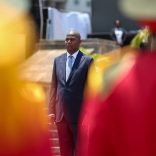
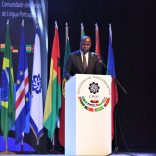

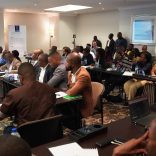
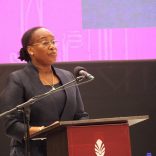
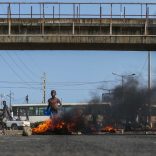




Leave a Reply
Be the First to Comment!
You must be logged in to post a comment.
You must be logged in to post a comment.